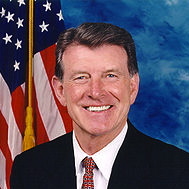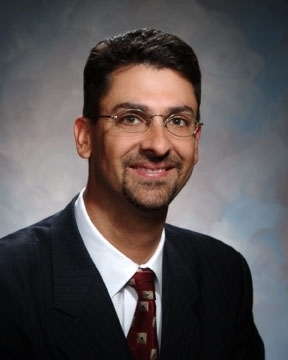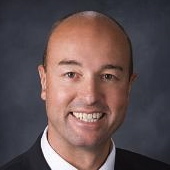For at least three decades, American Falls School District voters have said yes to schools, approving a series of supplemental property tax levies.
That burden has been borne partly by homeowners, but largely by industry, such as J.R. Simplot Co., which has operated a phosphate fertilizer manufacturing plant in Power County since 1944.
But for American Falls — and other school districts — this funding formula could change significantly. The Legislature is considering repealing the “personal property tax” on business equipment and supplies, which could shift more of the property tax burden onto homeowners.
Some 200 miles east of the Statehouse, American Falls Superintendent Ronald Bolinger is watching the debate closely. “I’m hopeful and I’m scared, because I know what this would mean to my county.”
What is the personal property tax — and what’s at stake?
The term “personal property” is a bit of a misnomer, yet a useful analogy. Imagine having to go through your home or apartment, filling out an inventory of your furniture, appliances and gadgetry, and then paying a tax on these items.
Businesses are expected to complete an inventory of their furniture, computers and sundry items as small as staplers — and then pay a “personal property tax” on this equipment. Business leaders have long lamented the tax, calling it cumbersome and onerous.
The 2008 Legislature approved a partial repeal of the tax — but tied the repeal to state revenue growth. But then the Great Recession hit, revenues dropped, and the 2008 law has never taken effect.
Now, some business leaders are seeking a full repeal of the tax, which amounted to nearly $141 million in 2012. While Simplot has taken no public position on the repeal, Boise’s Micron Technology is in full support. As Micron lobbyist Mike Reynoldson told StateImpact Idaho recently, “We have a policy from the 1900s being applied to the 21st Century.”
This tax policy, however dated, remains a significant revenue source for local governments. According to State Tax Commission estimates, school districts received $38.6 million from the personal property tax in 2012 — which puts K-12 in the same boat as local government groups which have been outspoken about a possible repeal. Counties received $38.9 million, and cities received $33.4 million.
Repeal — and replace?

A personal property tax bill has not yet been introduced. But Alex LaBeau of the Idaho Association of Commerce and Industry, a leading advocate of repeal, says it will contain two key components:
- The bill will phase in repeal, possibly over six years.
- The bill will replace the money schools receive to cover existing bond issues, supplemental levies and other tax levies.
Gov. Butch Otter’s 2013-14 budget proposes $20 million to keep schools and local governments whole as a phaseout begins. “Clearly schools have been and remain our highest priority,” Otter spokesman Jon Hanian said. “As our conversation with the Legislature on this issue turns into legislative action those concerns will retain priority.”
But … results may vary
A personal property tax repeal would ultimately affect more than 900 taxing districts — from school districts, cities and counties to community colleges, cemetery districts and mosquito abatement districts.

“Every one of them will have a different experience off of a statewide policy decision to eliminate a very bad tax,” said LaBeau.
Indeed, results will vary among the state’s school districts. In the aggregate, the personal property tax accounts for 9.1 percent of the $421 million in property taxes schools collect. But eight districts — generally, smaller districts with industrial property tax bases — receive more than a third of their property taxes from personal property. In American Falls, that figure is 40.6 percent.
Meanwhile, the Boise and Lewiston districts are in an uncommon position. Both are charter districts that predate statehood, and with that comes unique ability to collect tax levies funded, in part, through the personal property tax. Boise’s share comes to some $4.6 million per year, derived from small businesses and major employers such as Micron. Lewiston collects $2.3 million.
The charter districts present a quirky problem, LaBeau said. He thinks Boise could absorb the $4.6 million, over six years, from the growth of the district’s real property. But he says it may be different in Lewiston, which is more dependent on the personal property tax.

The two charter districts may need some “special attention,” said House Education Committee Chairman Reed DeMordaunt, R-Eagle. In the bigger picture, he believes a repeal would be good for business. “We can’t kill the goose here that is providing the funding for our schools.”
The long view
For Bolinger’s 18 years as American Falls superintendent, a voter-approved supplemental levy has been a budgeting fixture. The current levy provides $1.8 million annually, and this year, the district is looking to tack another $660,000 onto the levy. Voters will decide the issue in March.
But what will the future hold, if the personal property tax is eliminated? That’s a concern to education groups — even if the state covers the short-term impact of personal property tax repeal.
Skeptics include two stakeholder groups that don’t always see eye to eye: the Idaho Education Association and the Idaho School Boards Association. Both groups believe the repeal could shift the school financing burden from businesses to homeowners. “(It) will make it harder for schools to pass bonds and supplemental levies in the future,” said Jessica Harrison, the ISBA’s director of policy and government affairs.
LaBeau is unswayed. He believes the personal property tax should not be used to help bankroll school bond issues and supplemental levies in the future. After all, he says, this is the whole point of a repeal.
And he says the issue raises a more fundamental point: Does it make sense for districts to rely on two-year supplemental levies, as a vehicle to finance long-term needs and enrollment growth? “That doesn’t offer up a lot of stability to the process.”
Districts collecting the most dollars from the personal property tax
- Boise (District 1): $ 7,816,625
- Meridian (District 2): $ 2,742,993
- Lewiston (District 340): $2,402,693
- Pocatello (District 25): $1,437,761
- American Falls (District 381): $1,402,156
- Idaho Falls (District 91): $ 1,389,381
- Nampa (District 131): $1,200,636
- Twin Falls (District 411): 1,045,755
- Vallivue (District 139): $992,674
- Lakeland (District 272): $943,822
Districts receiving the largest percentage of property taxes from personal property
- Richfield (District 316): 51.6 percent ($216,949).
- Soda Springs (District 150): 48.1 percent ($644,807).
- Mullan (District 392): 42.9 percent ($220,794).
- Glenns Ferry (District 192): 42.4 percent ($134,503).
- American Falls (District 381): 40.6 percent ($1,402,156).
- Dietrich (District 314): 35.2 percent ($41,256)
- North Gem (District 149): 35.1 percent ($106,632).
- New Plymouth (District 372): 34.6 percent ($162,374).
- Pleasant Valley (District 364): 32.4 percent ($3,052).
- Midvale (District 433): 30.7 percent ($3,997)
